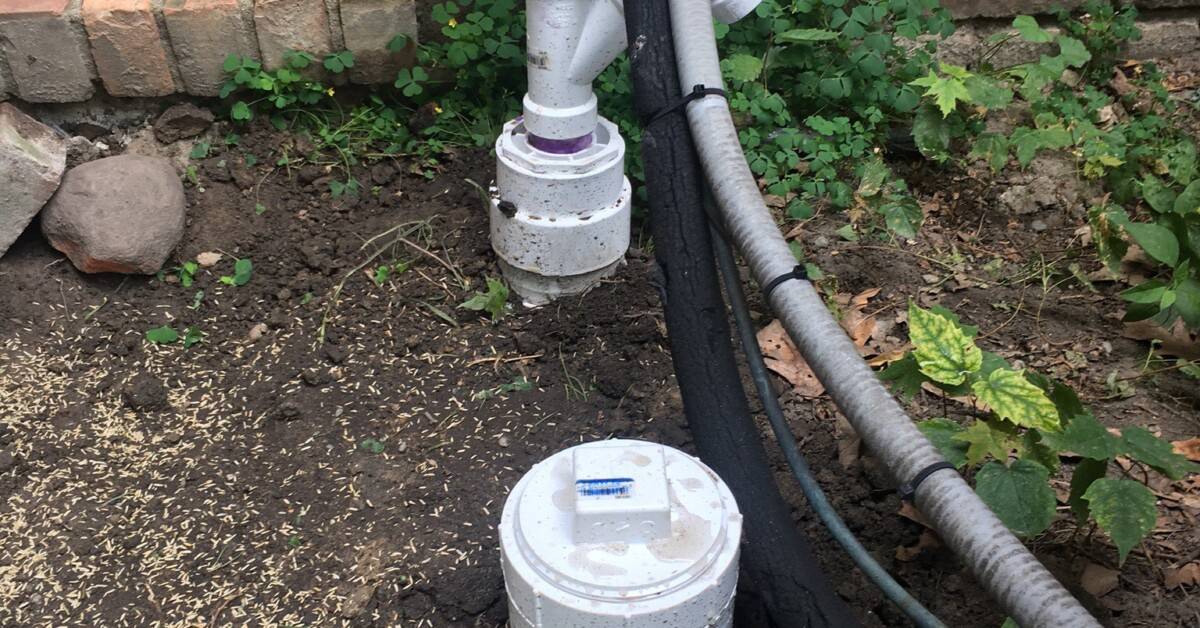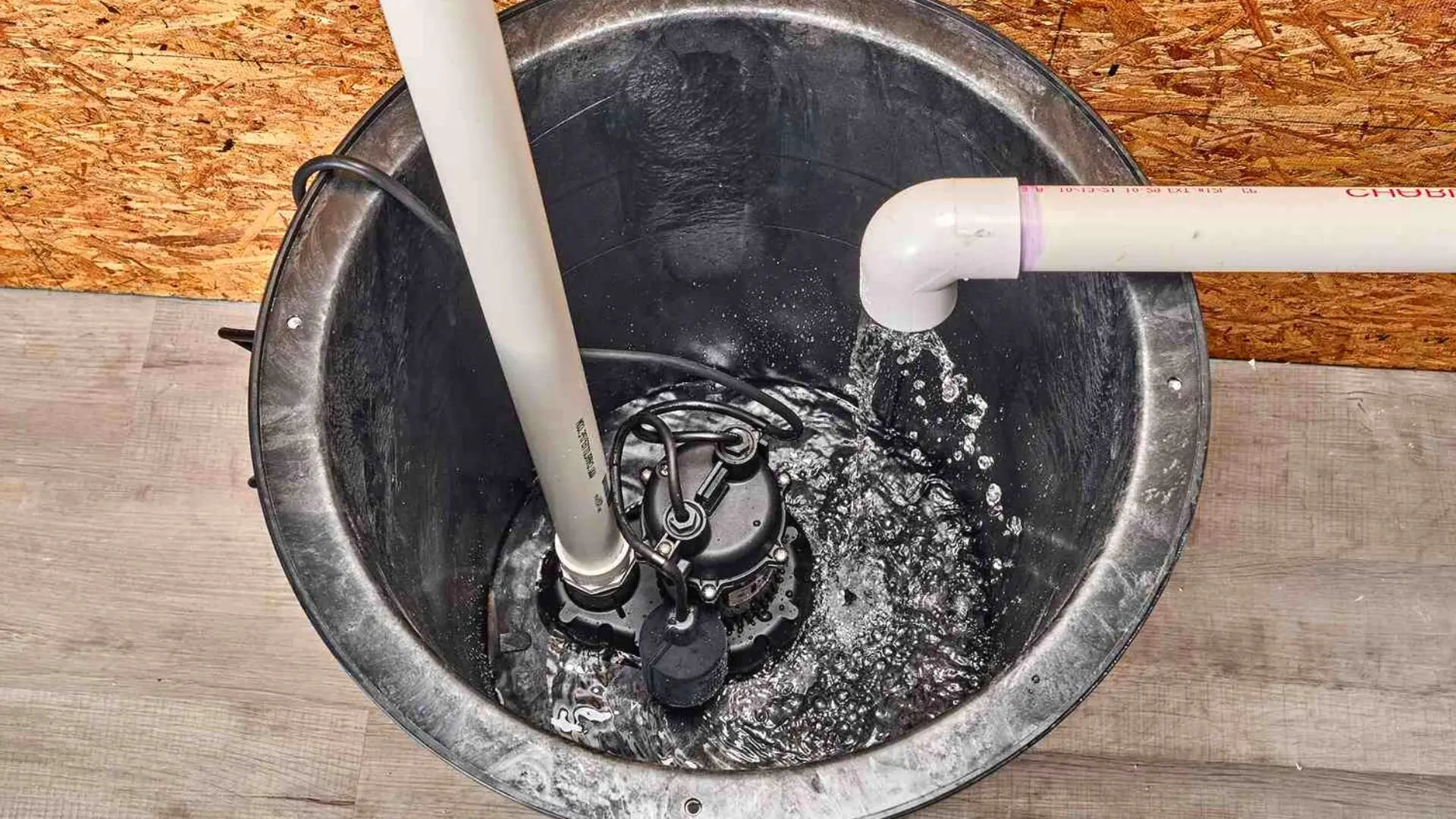Useful Tips for Maintaining a Sump Pump
Useful Tips for Maintaining a Sump Pump
Blog Article
What are your thoughts with regards to Keep Your Sump Pump Clean, It'll Keep You Dry?

Sump pumps are vital parts in many homes, specifically in locations vulnerable to flooding or too much moisture. They help stop water damage by effectively eliminating excess water from cellars or crawl spaces. Nonetheless, like any other appliance, sump pumps require regular maintenance to ensure they function effectively when required the most. Cleansing your sump pump is a crucial part of its upkeep, and recognizing how to do it effectively can save you from expensive fixings and possible calamities.
Introduction
Maintaining a clean sump pump is important for its appropriate functioning and longevity. Overlooking this necessary job can cause blockages, malfunctions, and ultimately, water damages to your home. For that reason, discovering exactly how to cleanse a sump pump is important for home owners that depend on these gadgets to keep their cellars dry and protected.
Indicators of a Dirty Sump Pump
Understanding when your sump pump requires cleaning is important for preventing potential malfunctions. Some common indications that indicate a filthy sump pump consist of weird noises during procedure, lowered water flow, and noticeable particles in the pit. If you discover any one of these signs, it's important to clean your sump pump immediately to avoid any kind of additional concerns.
Getting ready for Cleansing
Before you begin cleaning your sump pump, it's vital to take some safety preventative measures. Begin by turning off the power to the pump to avoid any type of electrical accidents. Furthermore, put on proper protective gear, such as handwear covers and goggles, to secure yourself from dirt, particles, and possible microorganisms.
Comprehending the Sump Pump
Before diving into the cleaning process, it's necessary to have a standard understanding of how a sump pump works. Generally mounted in a pit or basin listed below the cellar floor, a sump pump contains a number of vital elements, consisting of a pump, a float switch, and a discharge pipeline. When water builds up in the pit, the float button activates the pump, which then pumps the water out via the discharge pipeline, away from the building's structure.
Detailed Guide to Cleaning a Sump Pump
Turning off the Power
Begin by separating the power supply to the sump pump to avoid any type of mishaps while cleansing.
Checking for Correct Performance
Prior to re-installing the pump, perform a quick examination to make certain that the float switch turns on the pump appropriately. Pour some water right into the sump pit and observe the pump's operation. If every little thing is functioning properly, you can reconstruct the pump and reconnect the power supply.
Removing Particles and Dust
Use a bucket or a scoop to eliminate any noticeable particles, dirt, or sediment from the sump pit. Dispose of the debris properly to avoid it from blocking the pump or the discharge pipeline.
Cleaning up the Pump and Drift Switch Over
When the pit is clear of debris, carefully remove the pump from the pit. Inspect the pump and the float switch for any kind of indications of damages or wear. Use a soft brush or cloth to clean up the surfaces and remove any kind of accumulated crud.
Purging the System
After cleaning up the pump and float switch, flush the sump pit with clean water to get rid of any remaining dirt or sediment. This will certainly assist guarantee that the pump runs efficiently and successfully.
Maintenance Tips to Maintain Your Sump Pump Clean
Along with routine cleaning, there are several maintenance ideas you can follow to keep your sump pump in optimal condition:
Final thought
Cleansing your sump pump is an essential element of its upkeep and ensures that it operates successfully when you require it one of the most. By following the steps outlined in this overview and including normal maintenance right into your routine, you can prolong the life-span of your sump pump and safeguard your home from water damage.
6 STEPS ON HOW TO CLEAN A SUMP PUMP PROPERLY
UNDERSTANDING SUMP PUMPS
Your sump pump plays a crucial role in protecting your home by managing and removing excess water. It primarily functions as a “shield”, guarding your basement against the damaging effects of water accumulation. The pump is housed in a sump pit in the lowest part of your basement, and its job is to pump out any water that collects there.
During heavy rainfalls or when snow melts rapidly, water can infiltrate your basement, posing potential risks like flooding, structural damage, and harmful mold growth. Here, the sump pump springs into action, pumping out the intruding water and directing it away from your home.
SAFETY FIRST
Before cleaning, remember to prioritize safety. Disconnect the sump pump from the power source to prevent any accidental electric shocks. Also, wear sturdy gloves to protect your hands from any sharp or dirty components within the pump.
REMOVE THE SUMP PUMP
After ensuring your safety, the next step is to remove the sump pump from its pit. Doing this might require careful maneuvering as you don’t want to damage any pump components. Once removed, clean the sump pit to remove any accumulated debris or sludge.
INSPECT THE PUMP
Inspect the pump for any visible signs of wear or damage. Check the power cord, float switch, and impeller housing. If any components look worn out or damaged, consider replacing them to ensure optimal performance.
CLEAN THE PUMP
Thoroughly clean the pump with warm, soapy water. Make sure to rid it of any dirt, gravel, or other debris that might impede its performance. You can use a toothbrush to clean the small, hard-to-reach parts of the pump.
REINSTALL THE SUMP PUMP
Reinstall the pump into the sump pit Make sure it’s positioned correctly to remove the water effectively Once it’s back in place, reconnect it to the power source TEST THE PUMP
Finally, pour some water into the pit to ensure the pump works correctly. It should start automatically and begin pumping out the water; if it doesn’t, check the power source and the positioning of the pump.
Remember, while cleaning your sump pump is an essential part of home maintenance, hiring a professional plumber for a thorough inspection and cleaning at least once a year is also important. This will ensure that your pump is in optimal condition, ready to protect your home from potential water damage.
BEST PRACTICES FOR CLEANING SUMP PUMP DISCHARGE PIPES
Regular Inspection: Regularly inspect your discharge pipes, especially during heavy rainfall or snowmelt periods. Look for any signs of blockage or damage. Early detection of problems can prevent serious issues down the line. Periodic Cleaning: Over time, sediment and debris can accumulate in the discharge pipes, impeding the flow of water. Regular cleaning helps keep the pipes clear and functioning efficiently. You can use a high-pressure water jet to effectively clean the pipes. Insulation During Winter: In colder climates, discharge pipes can freeze, blocking the outflow of water. Protect your discharge pipes from freezing temperatures by insulating them with foam pipe insulation. This will ensure the sump pump can continue to discharge water even in freezing conditions. Proper Positioning: The discharge pipe should be positioned to direct water away from your home’s foundation. Improper positioning can lead to water seeping back into the basement. Ensure the pipe is long enough and angled correctly. Installation of a Check Valve: A check valve prevents water from flowing back into your sump pit after the pump has pushed it out. Installing a check valve helps maintain the efficiency of your sump pump and reduces the risk of flooding. Minimize Pipe Turns: Every curve or turn in the discharge pipe can decrease the efficiency of water flow. By minimizing turns and bends in your discharge pipe, you can increase the efficiency of your sump pump. https://www.fullspeedplumbing.com/how-to-clean-a-sump-pump-properly9999/

Do you appreciate reading about How to Care for Your Sump Pump? Give a short review down below. We'd be happy to hear your views about this piece. We are looking forward that you visit us again in the future. Do you know someone else who is in the market for the topic? Be sure promote it. Thank you so much for going through it.
Click Here Report this page